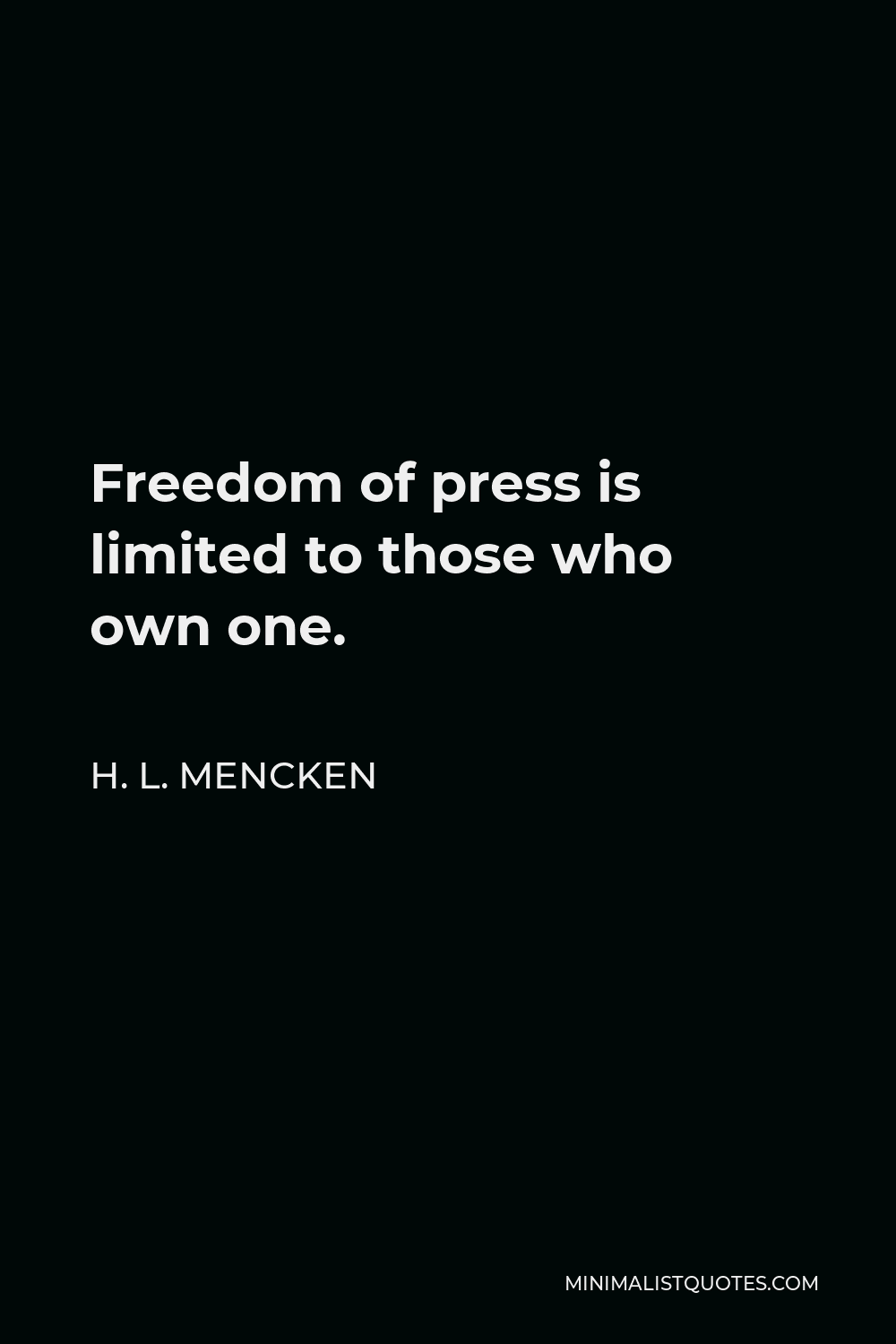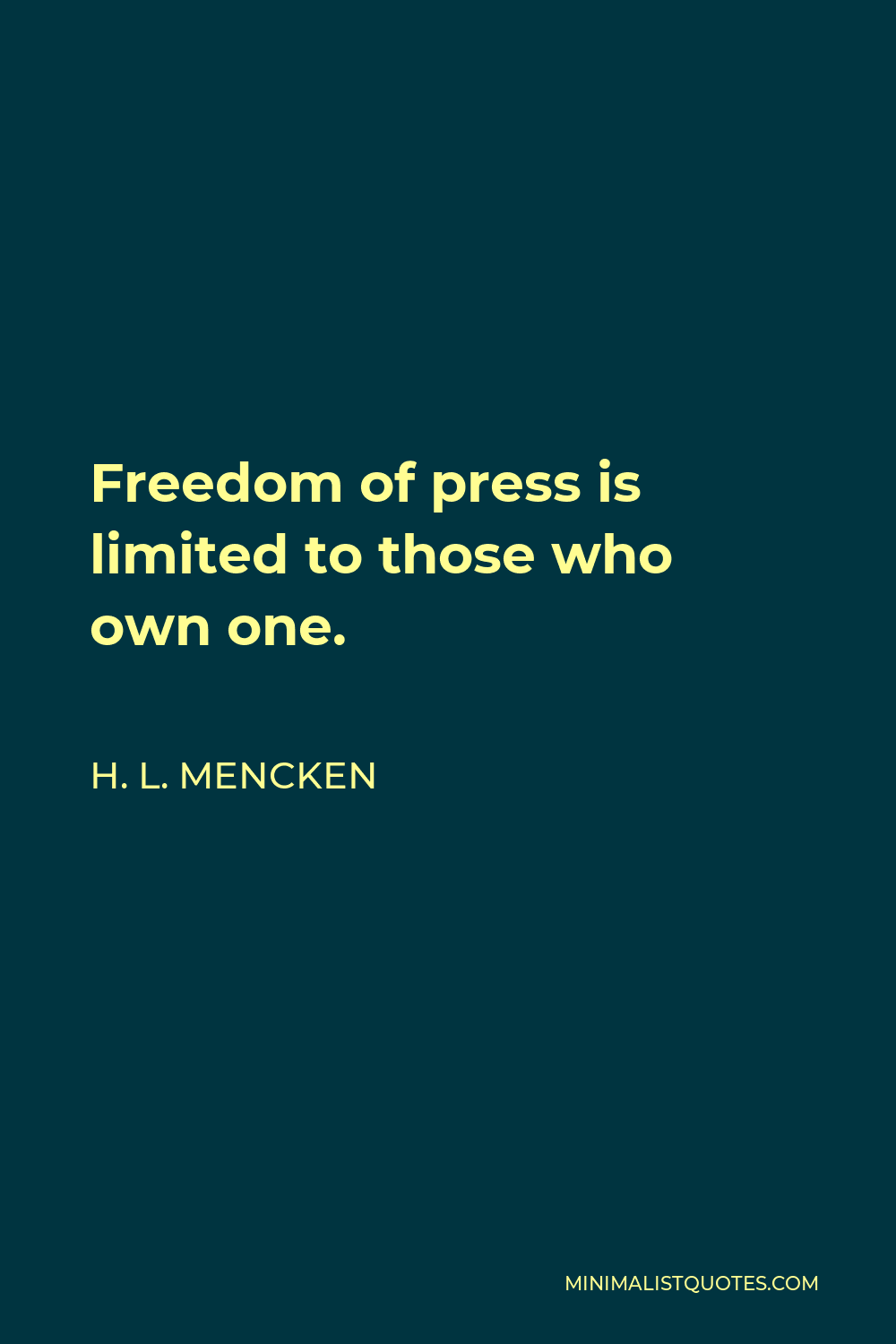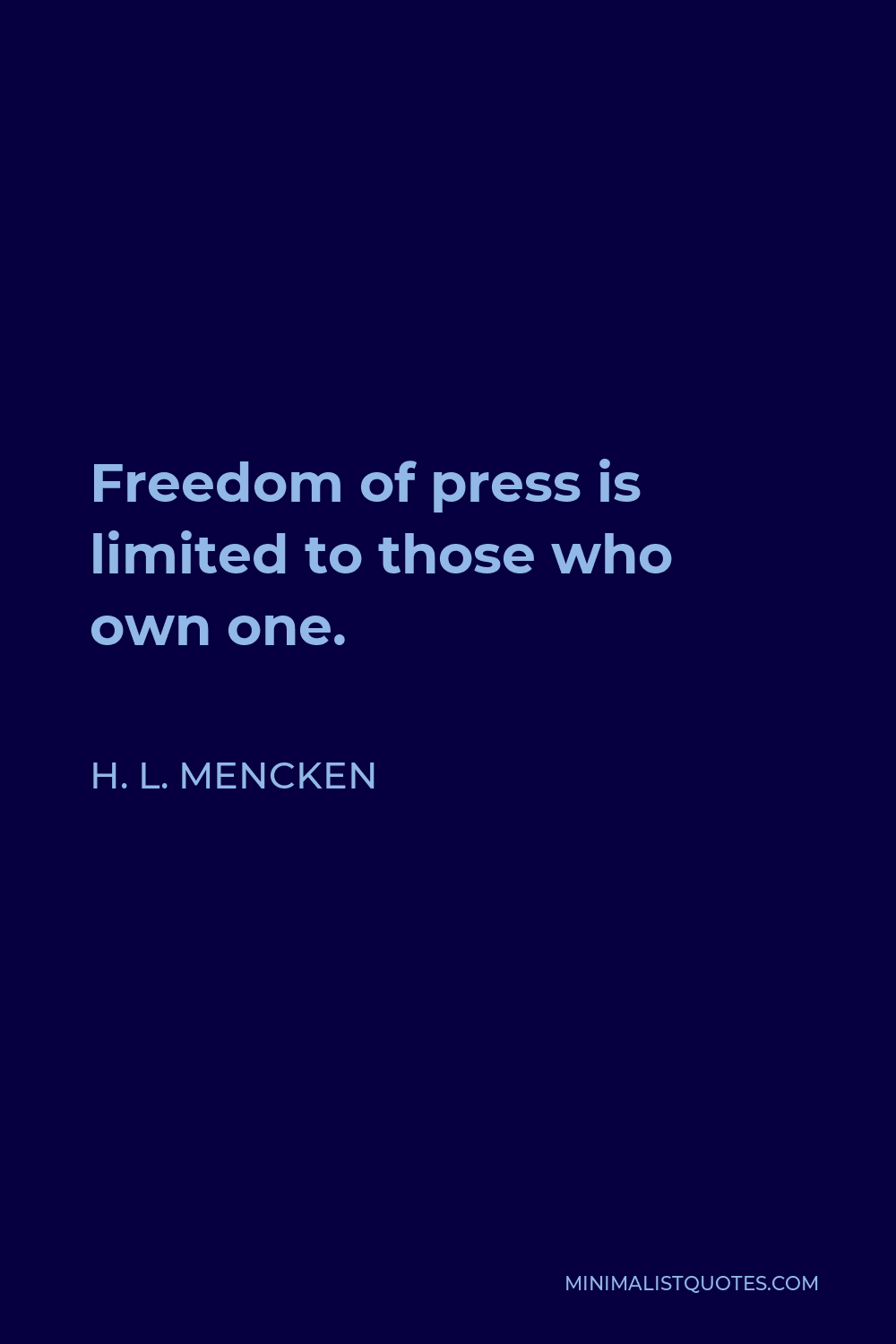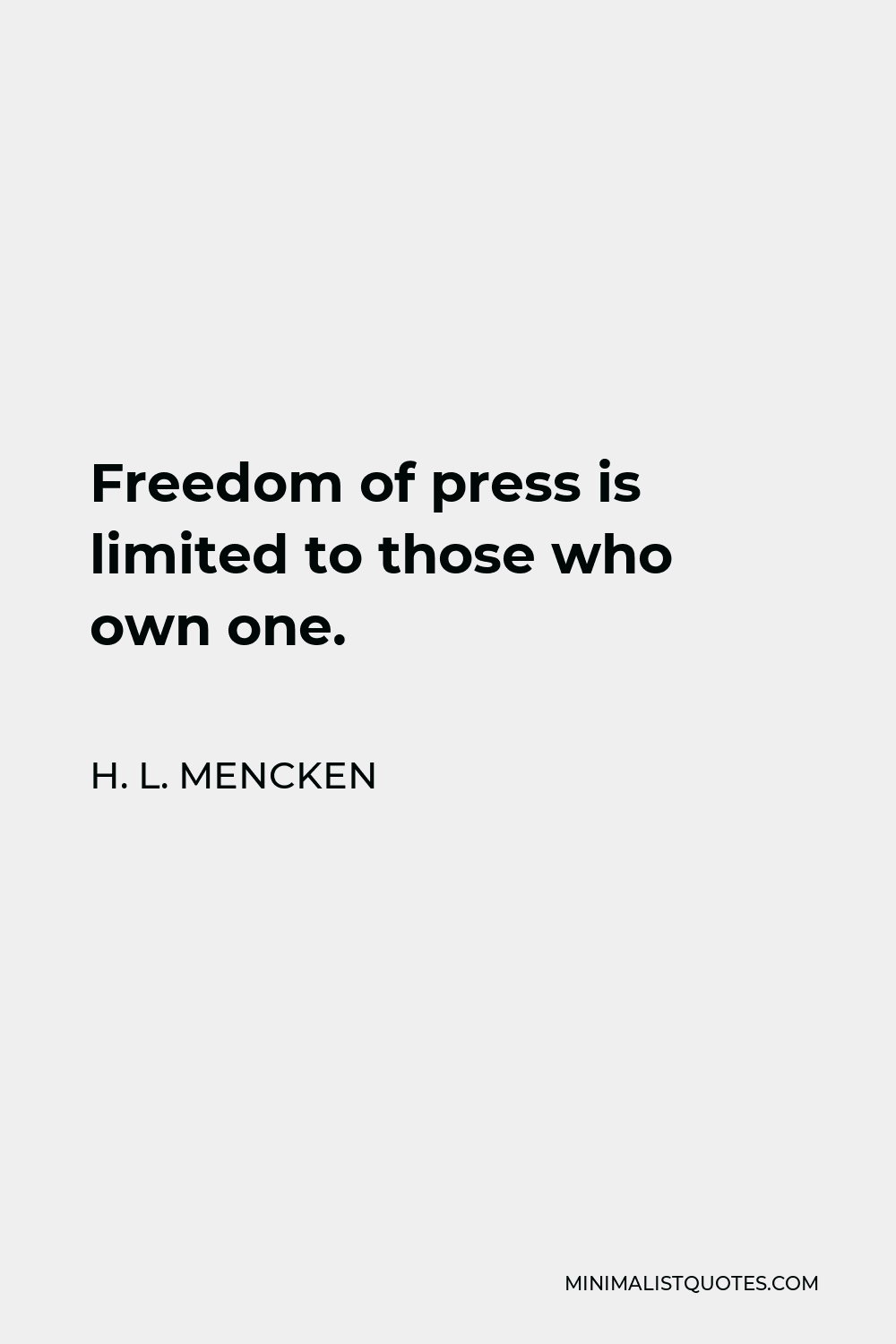Equality before the law is probably forever unattainable. It is a noble ideal, but it can never be realized, for what men value in this world is not rights but privileges.
H. L. MENCKENFreedom of press is limited to those who own one.
More H. L. Mencken Quotes
-





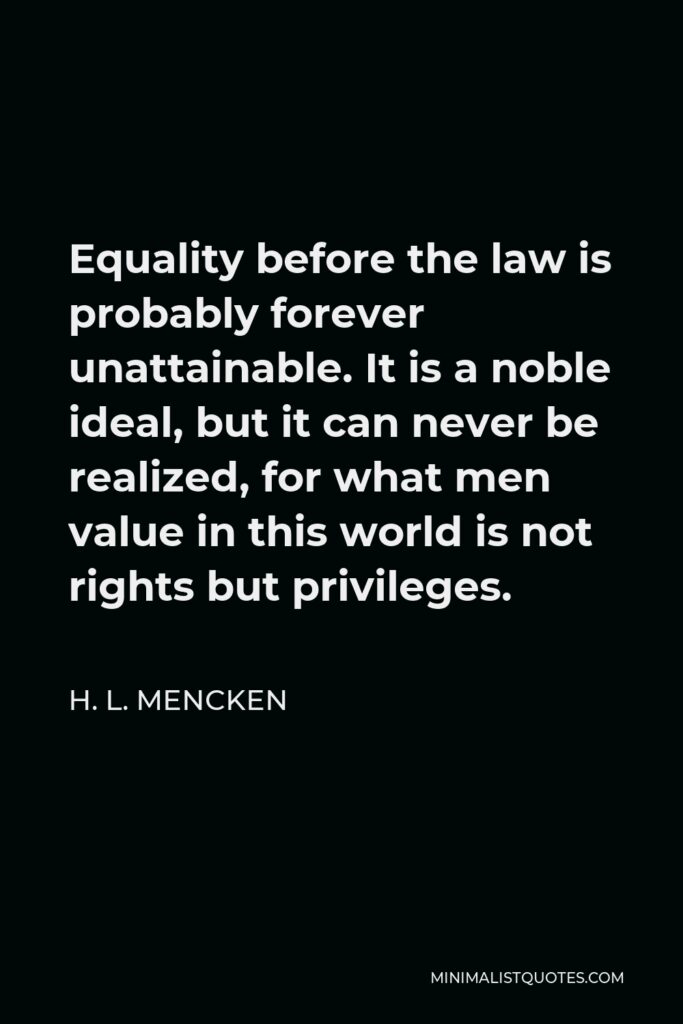

-





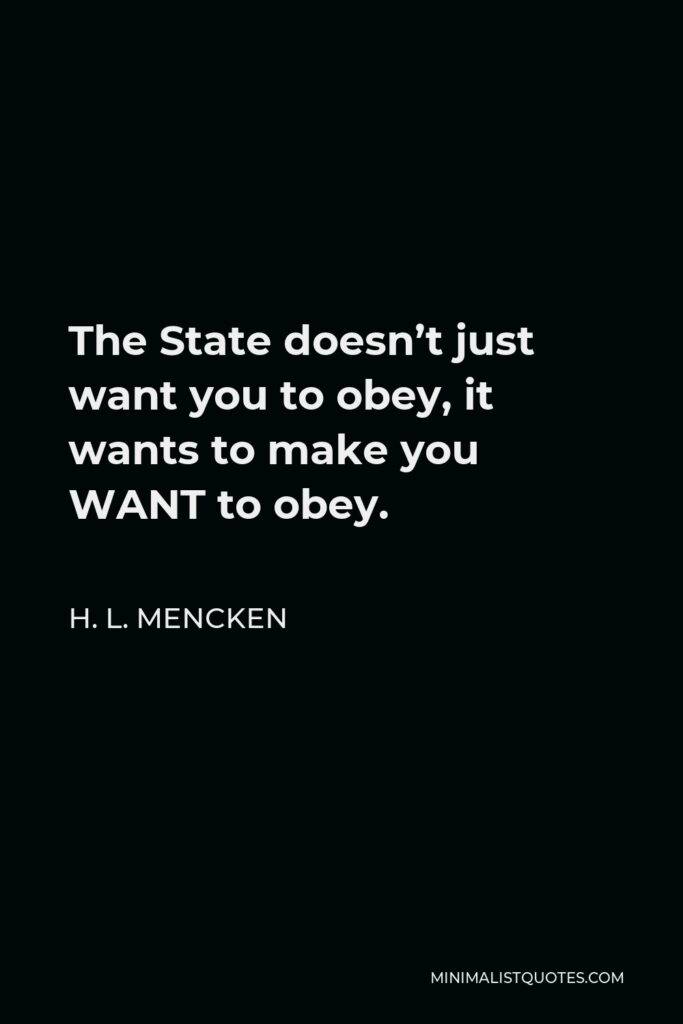

The State doesn’t just want you to obey, it wants to make you WANT to obey.
H. L. MENCKEN -





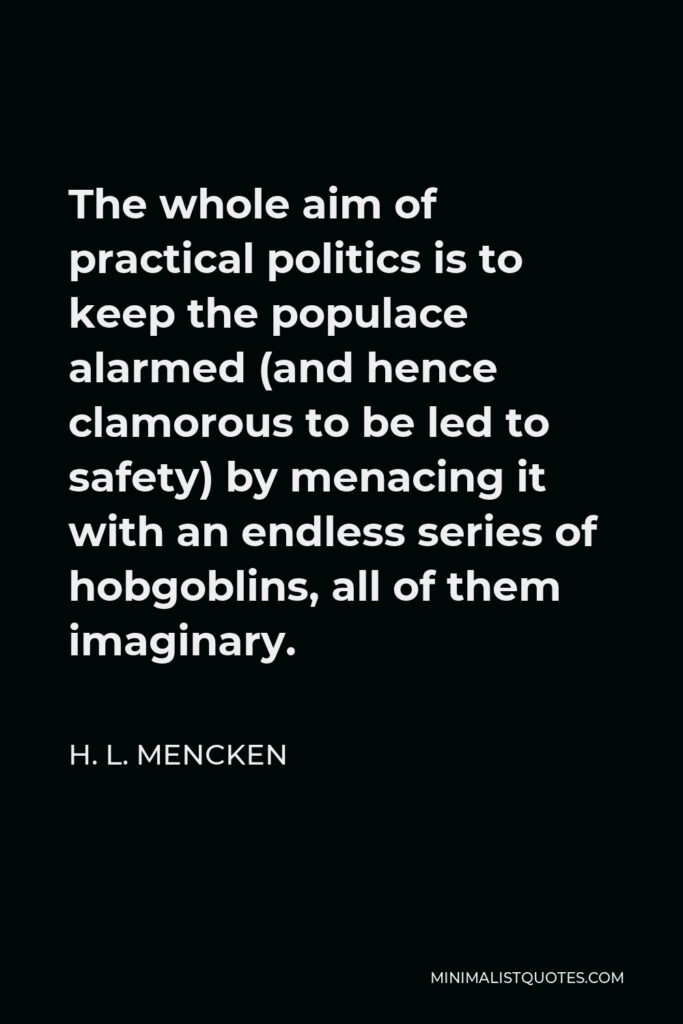

The whole aim of practical politics is to keep the populace alarmed (and hence clamorous to be led to safety) by menacing it with an endless series of hobgoblins, all of them imaginary.
H. L. MENCKEN -





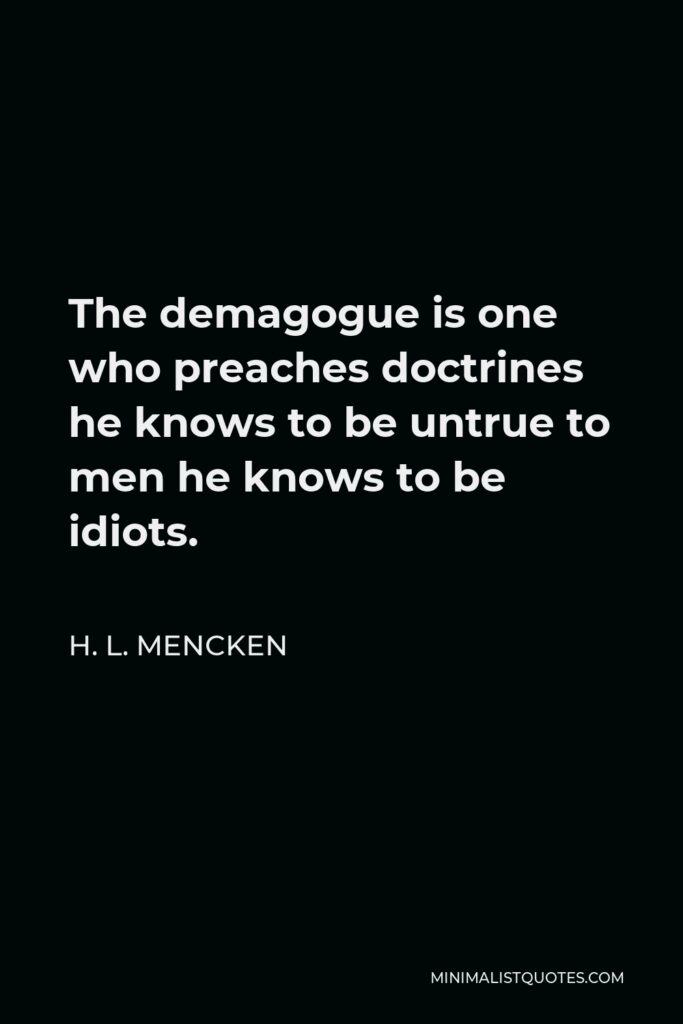

The demagogue is one who preaches doctrines he knows to be untrue to men he knows to be idiots.
H. L. MENCKEN -





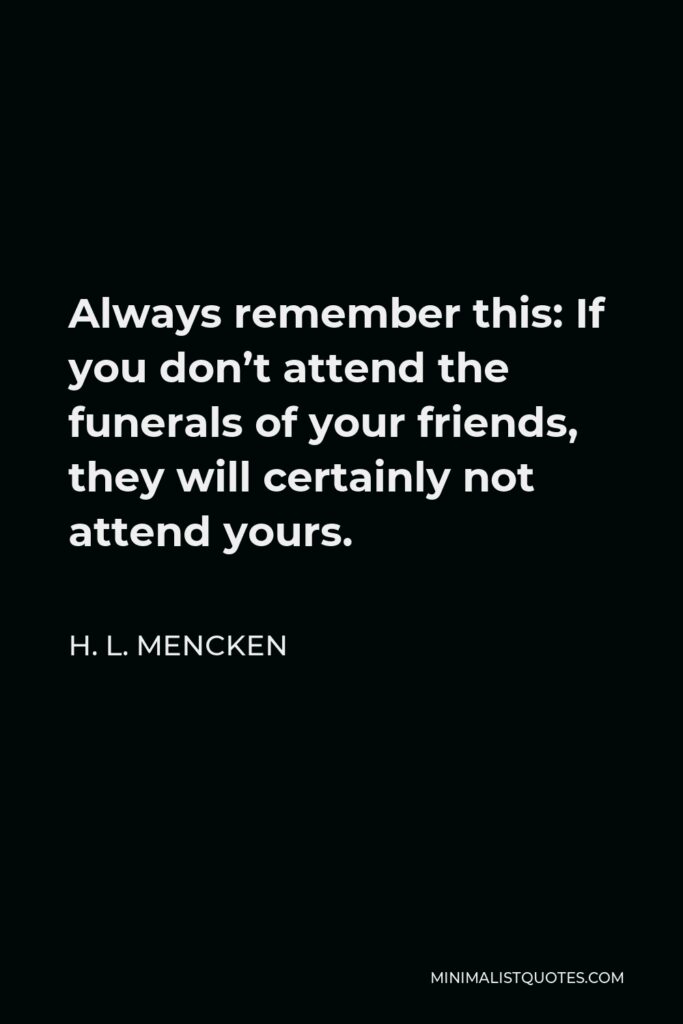

Always remember this: If you don’t attend the funerals of your friends, they will certainly not attend yours.
H. L. MENCKEN -





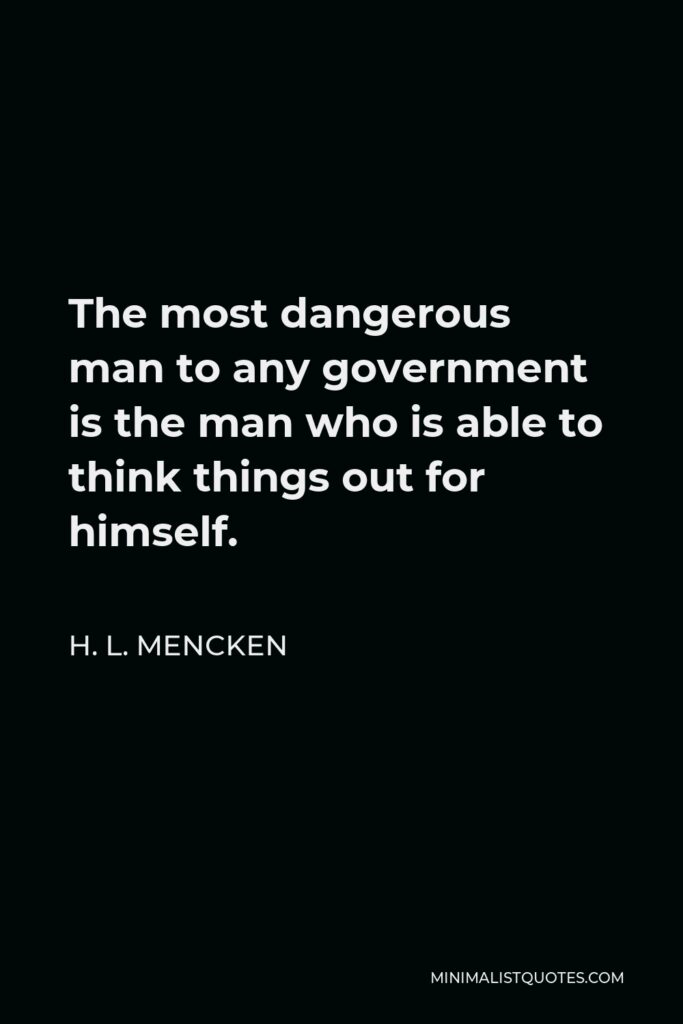

The most dangerous man to any government is the man who is able to think things out for himself.
H. L. MENCKEN -







The ideal way to get rid of any infectious disease would be to shoot instantly every person who comes down with it.
H. L. MENCKEN -





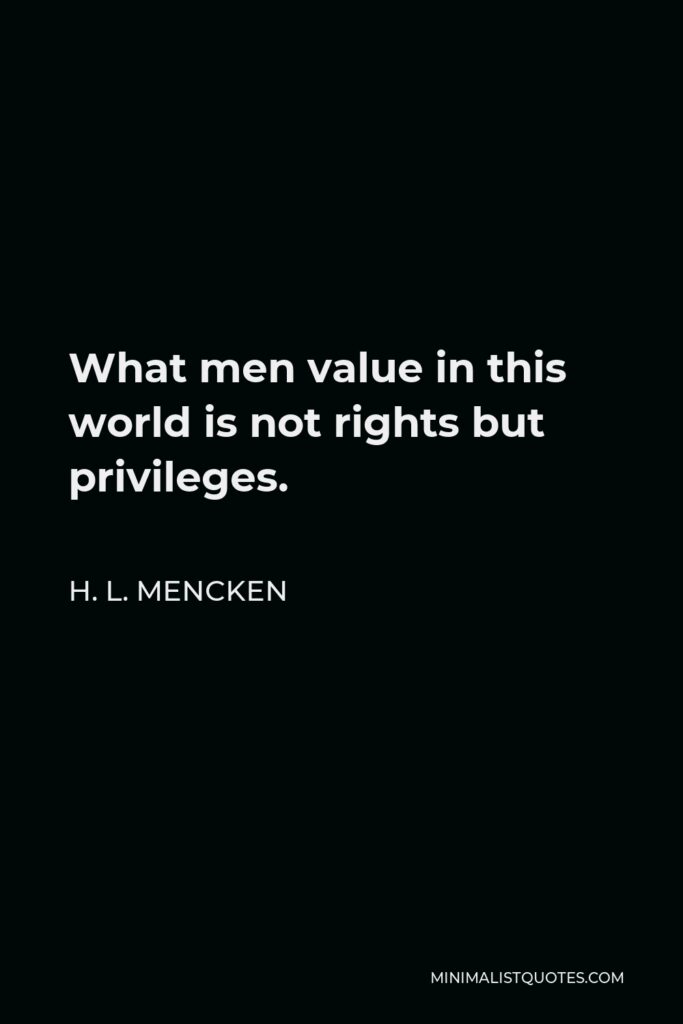

What men value in this world is not rights but privileges.
H. L. MENCKEN -





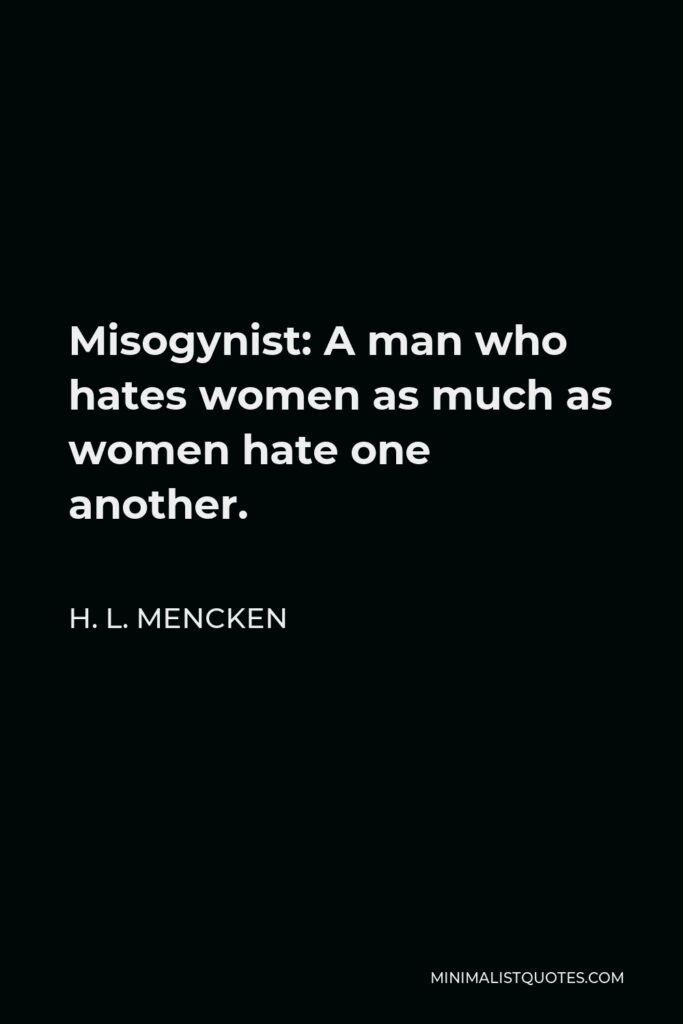

Misogynist: A man who hates women as much as women hate one another.
H. L. MENCKEN -







Evangelical Christianity, as everyone knows, is founded upon hate, as the Christianity of Christ was founded upon love.
H. L. MENCKEN -





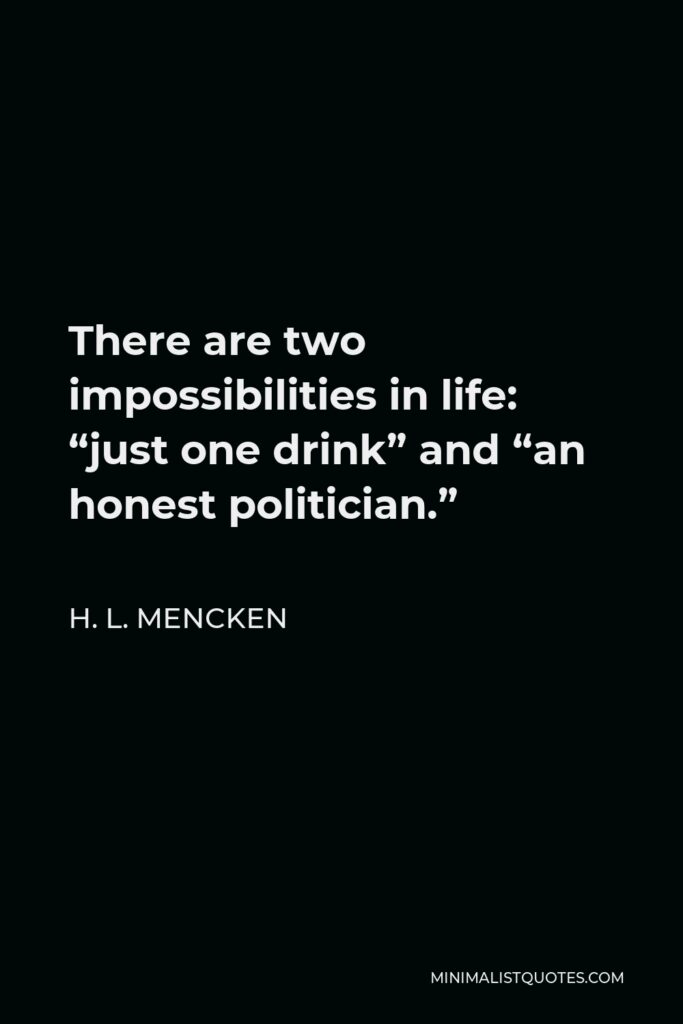

There are two impossibilities in life: “just one drink” and “an honest politician.”
H. L. MENCKEN -





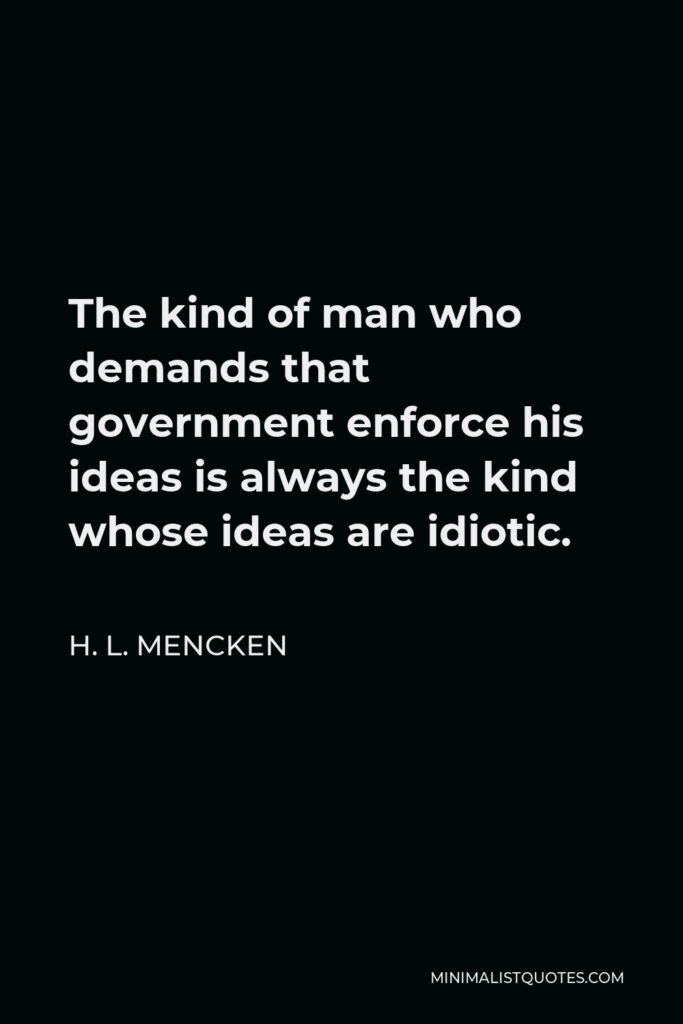

The kind of man who demands that government enforce his ideas is always the kind whose ideas are idiotic.
H. L. MENCKEN -





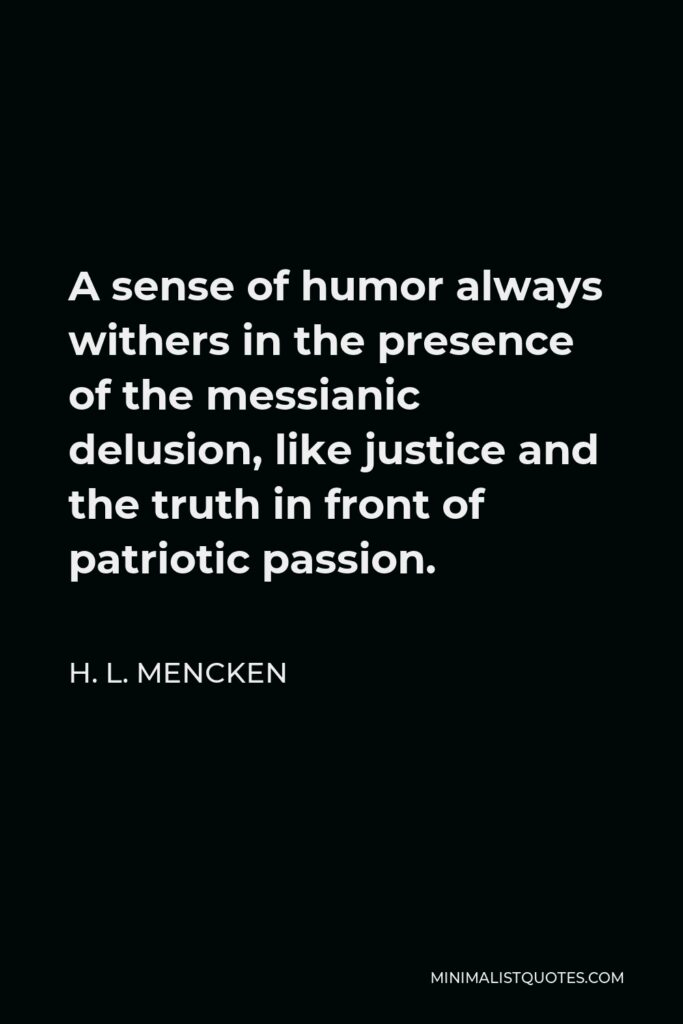

A sense of humor always withers in the presence of the messianic delusion, like justice and the truth in front of patriotic passion.
H. L. MENCKEN -





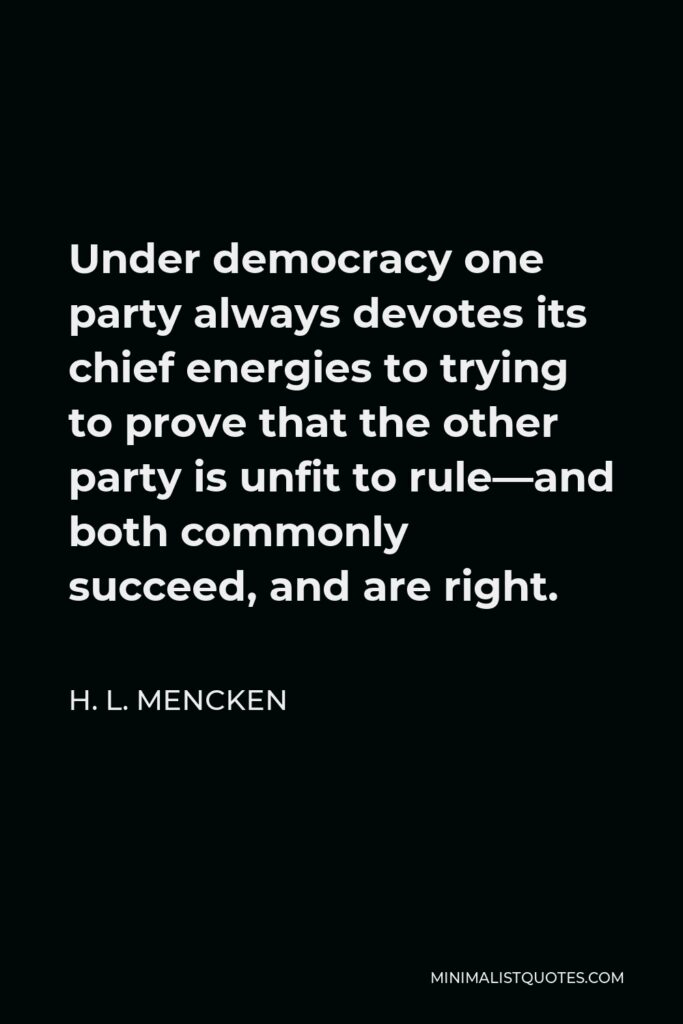

Under democracy one party always devotes its chief energies to trying to prove that the other party is unfit to rule—and both commonly succeed, and are right.
H. L. MENCKEN -





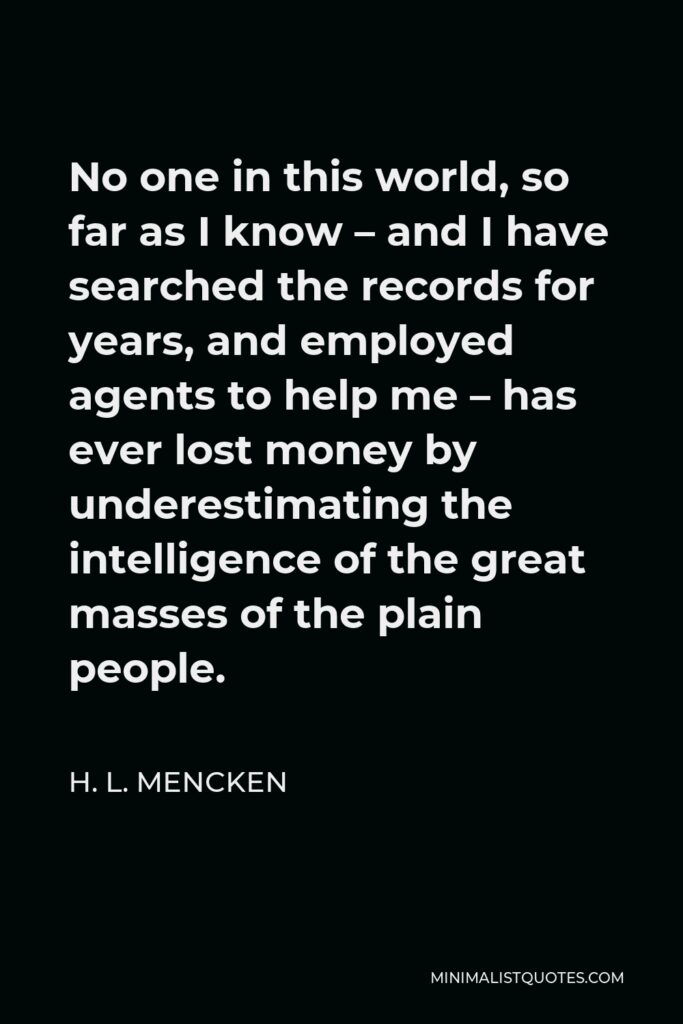

No one in this world, so far as I know – and I have searched the records for years, and employed agents to help me – has ever lost money by underestimating the intelligence of the great masses of the plain people.
H. L. MENCKEN -





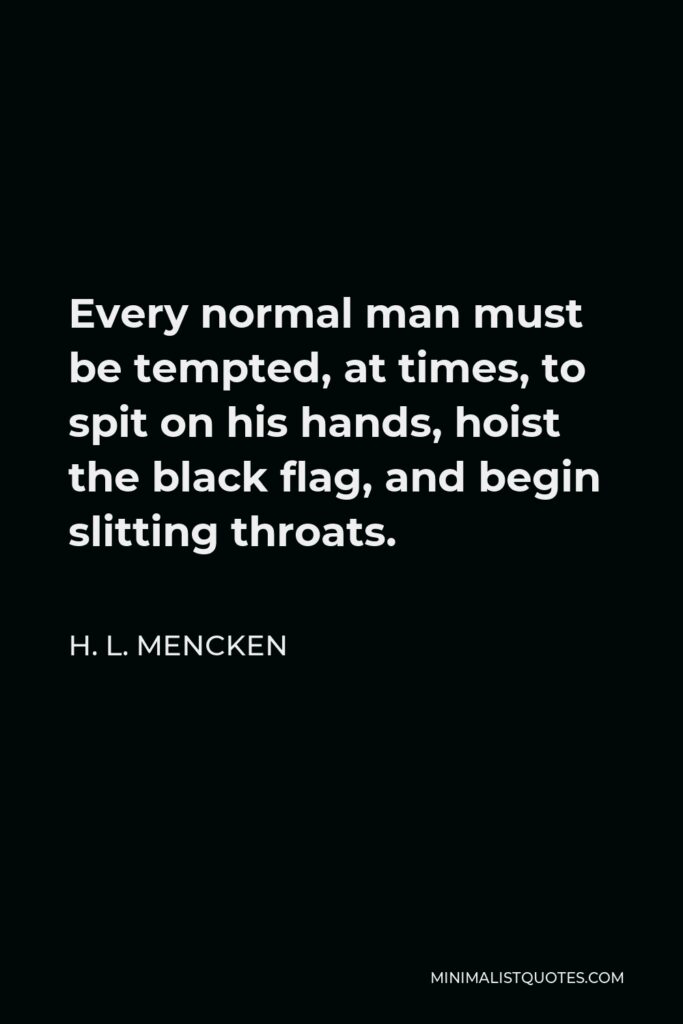

Every normal man must be tempted, at times, to spit on his hands, hoist the black flag, and begin slitting throats.
H. L. MENCKEN
